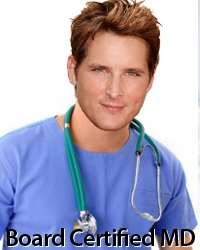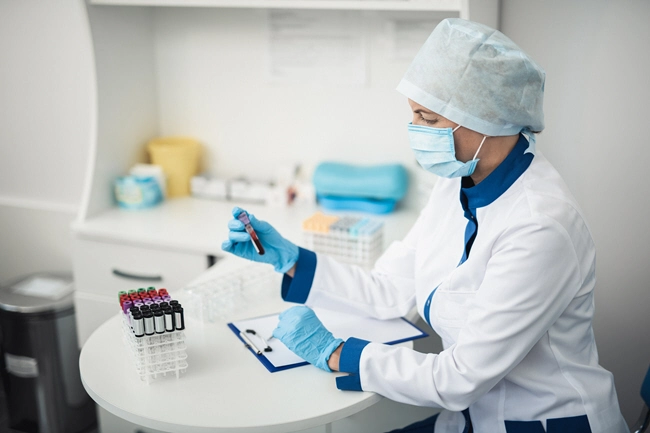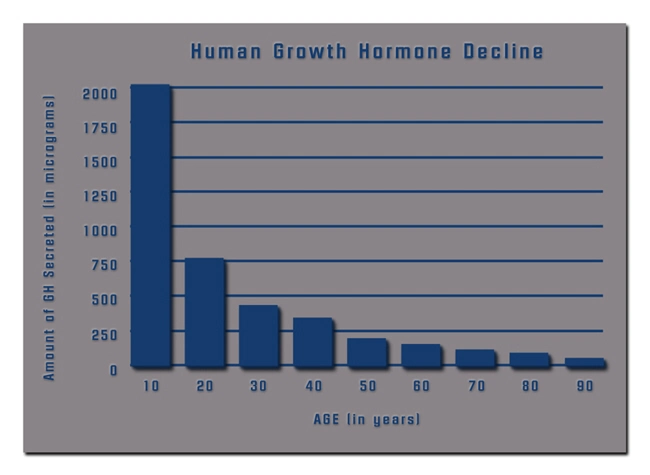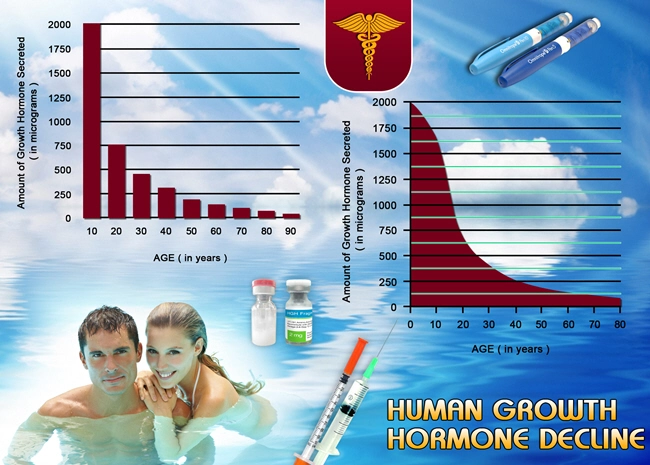
Introduction
Bodybuilding, a popular sport and fitness regimen among American males, involves intense physical training aimed at enhancing muscular development and overall physique. While the physical benefits of bodybuilding are well-documented, the effects on neurological health remain a subject of increasing interest. This article delves into the relationship between intense bodybuilding and brain function, exploring how such rigorous training might influence cognitive abilities and neurological well-being in American males.
The Physiology of Intense Training
Intense bodybuilding training places significant demands on the body, including the cardiovascular and muscular systems. Such training often involves high-volume workouts, heavy lifting, and minimal rest periods, all of which can lead to physiological stress. This stress, while beneficial for muscle growth, may also have implications for neurological health. The release of stress hormones like cortisol, for instance, can affect brain function if not properly managed.
Neurological Benefits of Bodybuilding
Despite the potential for stress, bodybuilding can offer several neurological benefits. Regular physical exercise, including weight training, has been shown to enhance brain health by improving blood flow and oxygenation. This can lead to better cognitive function, including improved memory and attention span. Additionally, the discipline and focus required for bodybuilding can contribute to mental resilience and emotional well-being, factors that are crucial for overall neurological health.
Potential Risks and Considerations
However, the intense nature of bodybuilding can also pose risks to neurological health. Overtraining, a common issue among dedicated bodybuilders, can lead to chronic fatigue and burnout, which may negatively impact cognitive function. Moreover, the use of performance-enhancing substances, sometimes prevalent in the bodybuilding community, can have detrimental effects on the brain. For instance, anabolic steroids can alter neurotransmitter levels and potentially lead to mood disorders and cognitive impairment.
The Role of Nutrition and Recovery
Nutrition and recovery play critical roles in mitigating the potential neurological risks associated with intense bodybuilding. A balanced diet rich in omega-3 fatty acids, antioxidants, and other brain-healthy nutrients can support cognitive function and reduce inflammation. Adequate rest and recovery periods are also essential, as they allow the body and brain to repair and adapt to the stresses of training. American males engaged in bodybuilding should prioritize these aspects to maintain optimal neurological health.
Research and Future Directions
Current research on the effects of bodybuilding on neurological health is limited but growing. Studies have begun to explore the impact of resistance training on brain structure and function, with some evidence suggesting that it may enhance neuroplasticity—the brain's ability to form new neural connections. Future research should focus on longitudinal studies to better understand the long-term effects of intense bodybuilding on cognitive health in American males. Additionally, investigating the role of specific training protocols and nutritional strategies could provide valuable insights for optimizing both physical and neurological outcomes.
Conclusion
Bodybuilding, as a form of intense physical training, has both potential benefits and risks for neurological health in American males. While it can enhance cognitive function and mental resilience, the risks of overtraining and the use of performance-enhancing substances must be carefully managed. By prioritizing nutrition, recovery, and informed training practices, American males can enjoy the physical rewards of bodybuilding while safeguarding their neurological well-being. As research continues to evolve, a more comprehensive understanding of the interplay between intense training and brain health will undoubtedly emerge, guiding future practices in this demanding yet rewarding sport.
Contact Us Today For A Free Consultation
Dear Patient,
Once you have completing the above contact form, for security purposes and confirmation, please confirm your information by calling us.
Please call now: 1-800-380-5339.
Welcoming You To Our Clinic, Professor Tom Henderson.

- Unveiling the Synergy Between Body Building and Diabetes Control in American Males [Last Updated On: February 27th, 2025] [Originally Added On: February 27th, 2025]
- The Therapeutic Impact of Bodybuilding on Mental Health [Last Updated On: March 2nd, 2025] [Originally Added On: March 2nd, 2025]
- Enhancing Bodybuilding Performance and Injury Prevention: The Integral Role of Physical Therapy [Last Updated On: March 3rd, 2025] [Originally Added On: March 3rd, 2025]
- Optimizing Nutrition for Successful Bodybuilding: A Comprehensive Guide [Last Updated On: March 4th, 2025] [Originally Added On: March 4th, 2025]
- Body Building: A Strategic Approach to Combat Obesity and Metabolic Syndrome in American Males [Last Updated On: March 4th, 2025] [Originally Added On: March 4th, 2025]
- Bodybuilding: Impact on Health and Body Composition in American Males [Last Updated On: March 5th, 2025] [Originally Added On: March 5th, 2025]
- Exploring the Cardiovascular Benefits of Bodybuilding for American Men [Last Updated On: March 6th, 2025] [Originally Added On: March 6th, 2025]
- Optimizing Orthopedic Health in Bodybuilding: Strategies to Prevent Injuries and Enhance Performance [Last Updated On: March 7th, 2025] [Originally Added On: March 7th, 2025]
- Unveiling the Nexus of Longevity and Body Building: Insights from Geriatric Medicine [Last Updated On: March 7th, 2025] [Originally Added On: March 7th, 2025]
- The Dark Side of Bodybuilding: Risks and Consequences of Anabolic Steroid Use [Last Updated On: March 8th, 2025] [Originally Added On: March 8th, 2025]
- The Endocrinological Blueprint of Bodybuilding: Hormones, Risks, and Strategies for American Males [Last Updated On: March 9th, 2025] [Originally Added On: March 9th, 2025]
- Bodybuilding Boosts Mental Health: Self-Esteem, Stress Relief, and Social Bonds for American Men [Last Updated On: March 12th, 2025] [Originally Added On: March 12th, 2025]
- The Impact of Bodybuilding on Sleep: A Comprehensive Analysis for American Males [Last Updated On: March 13th, 2025] [Originally Added On: March 13th, 2025]
- Unleashing the Power of Body Building: A Therapeutic Approach to Managing Chronic Pain in American Males [Last Updated On: March 15th, 2025] [Originally Added On: March 15th, 2025]
- Bodybuilding: A Potent Strategy for Hypertension Management in American Males [Last Updated On: March 17th, 2025] [Originally Added On: March 17th, 2025]
- Injury Prevention Strategies for American Male Bodybuilders: Expert Physiotherapy Insights [Last Updated On: March 17th, 2025] [Originally Added On: March 17th, 2025]
- Body Building Myths and Facts for American Males: A Holistic Approach [Last Updated On: March 18th, 2025] [Originally Added On: March 18th, 2025]
- Integrating Bodybuilding into Post-Surgical Rehabilitation for American Males: A Physician's Guide [Last Updated On: March 19th, 2025] [Originally Added On: March 19th, 2025]
- Bodybuilding as a Therapeutic Strategy for Osteoporosis in American Men [Last Updated On: March 19th, 2025] [Originally Added On: March 19th, 2025]
- Competitive Bodybuilding: Health Risks and Mitigation Strategies for American Males [Last Updated On: March 20th, 2025] [Originally Added On: March 20th, 2025]
- Bodybuilding's Impact on Endocrine System: Hormones, Health Risks, and Management Strategies [Last Updated On: March 20th, 2025] [Originally Added On: March 20th, 2025]
- Body Building: A Therapeutic Approach to Managing Stress and Anxiety in American Males [Last Updated On: March 21st, 2025] [Originally Added On: March 21st, 2025]
- Debunking Menstrual Cycle Myths: Optimizing Women's Bodybuilding Training [Last Updated On: March 22nd, 2025] [Originally Added On: March 22nd, 2025]
- Bodybuilding Boosts Immunity: A Comprehensive Guide for American Males [Last Updated On: March 22nd, 2025] [Originally Added On: March 22nd, 2025]
- Bodybuilding's Role in Enhancing Addiction Recovery for American Males [Last Updated On: March 22nd, 2025] [Originally Added On: March 22nd, 2025]
- Asthma and Bodybuilding: Safety, Benefits, and Program Tailoring for American Males [Last Updated On: March 22nd, 2025] [Originally Added On: March 22nd, 2025]
- Managing Lifestyle Diseases in Bodybuilding: Strategies for American Males [Last Updated On: March 22nd, 2025] [Originally Added On: March 22nd, 2025]
- Bodybuilding's Role in Enhancing Holistic Health for American Males [Last Updated On: March 22nd, 2025] [Originally Added On: March 22nd, 2025]
- Bodybuilding Strategies for American Males to Combat Age-Related Muscle Loss [Last Updated On: March 22nd, 2025] [Originally Added On: March 22nd, 2025]
- Bodybuilding and Heart Health: Risks and Cardiologist's Mitigation Strategies [Last Updated On: March 22nd, 2025] [Originally Added On: March 22nd, 2025]
- Bodybuilding's Impact on Prostate Health: Hormones, Supplements, and Prevention Strategies [Last Updated On: March 23rd, 2025] [Originally Added On: March 23rd, 2025]
- Bodybuilding in Young Males: Benefits, Risks, and Safe Practices [Last Updated On: March 23rd, 2025] [Originally Added On: March 23rd, 2025]
- Essential Vitamins and Supplements for American Male Bodybuilders: Enhancing Muscle Growth and Performance [Last Updated On: March 23rd, 2025] [Originally Added On: March 23rd, 2025]
- Kidney Health in Bodybuilding: Safe Practices for American Males [Last Updated On: March 23rd, 2025] [Originally Added On: March 23rd, 2025]
- Orthostatic Hypotension in Bodybuilding: Risks, Symptoms, and Management Strategies for American Males [Last Updated On: March 23rd, 2025] [Originally Added On: March 23rd, 2025]
- Body Building: A Non-Pharmacological Approach to Managing Parkinson's in American Males [Last Updated On: March 23rd, 2025] [Originally Added On: March 23rd, 2025]
- Rheumatoid Arthritis Management: Body Building Benefits for American Males [Last Updated On: March 24th, 2025] [Originally Added On: March 24th, 2025]
- Bodybuilding as a Natural Strategy for Arthritis Management in American Men [Last Updated On: March 24th, 2025] [Originally Added On: March 24th, 2025]
- Liquid Diets in Bodybuilding: Risks, Benefits, and Sustainable Alternatives [Last Updated On: March 24th, 2025] [Originally Added On: March 24th, 2025]
- Bodybuilding Boosts Postnatal Recovery for New American Fathers: Physical and Psychological Benefits [Last Updated On: March 24th, 2025] [Originally Added On: March 24th, 2025]
- Bodybuilding Benefits for American Males with COPD: Strength, Respiratory Health, and Well-being [Last Updated On: March 24th, 2025] [Originally Added On: March 24th, 2025]
- Bodybuilding: A Comprehensive Anti-Aging Strategy for American Men [Last Updated On: March 24th, 2025] [Originally Added On: March 24th, 2025]
- Bodybuilding Enhances Gut Health in American Males: Clinical Insights and Benefits [Last Updated On: March 24th, 2025] [Originally Added On: March 24th, 2025]
- Bodybuilding's Psychological Impact on American Teenage Males: Benefits and Risks [Last Updated On: March 25th, 2025] [Originally Added On: March 25th, 2025]
- Bodybuilding Enhances Strength Recovery in American Males Post-Chemotherapy [Last Updated On: March 25th, 2025] [Originally Added On: March 25th, 2025]
- Body Building Enhances Lung Function in American Males: A Respiratory Therapist's Insight [Last Updated On: March 25th, 2025] [Originally Added On: March 25th, 2025]
- Bodybuilding Reduces Colon Cancer Risk in American Males: Diet, Hormones, and Fitness [Last Updated On: March 25th, 2025] [Originally Added On: March 25th, 2025]
- Bodybuilding's Impact on Metabolism: Diet, Training, and Hormonal Effects [Last Updated On: March 25th, 2025] [Originally Added On: March 25th, 2025]
- Essential Safety Guidelines for American Male Bodybuilders [Last Updated On: March 26th, 2025] [Originally Added On: March 26th, 2025]
- Bodybuilding Boosts Immune Health: Optimal Practices for American Males [Last Updated On: March 26th, 2025] [Originally Added On: March 26th, 2025]
- Male Menopause and Body Building: Strategies for Muscle Growth and Health [Last Updated On: March 26th, 2025] [Originally Added On: March 26th, 2025]
- Sickle Cell Disease and Body Building: Benefits, Risks, and Guidelines for American Males [Last Updated On: March 26th, 2025] [Originally Added On: March 26th, 2025]
- Body Building and Heart Health: Benefits and Risks for American Males [Last Updated On: March 26th, 2025] [Originally Added On: March 26th, 2025]
- Bodybuilding: Building Mental Resilience and Fortitude in American Men [Last Updated On: March 26th, 2025] [Originally Added On: March 26th, 2025]
- Bodybuilding Boosts Brain Health: A Holistic Approach for American Males [Last Updated On: March 27th, 2025] [Originally Added On: March 27th, 2025]
- Body Building and Dementia Risk: Insights for American Males [Last Updated On: March 27th, 2025] [Originally Added On: March 27th, 2025]
- Bodybuilding: A Holistic Approach for American Males with Chronic Degenerative Diseases [Last Updated On: March 27th, 2025] [Originally Added On: March 27th, 2025]
- Genetics in Bodybuilding: Optimizing Muscle Growth and Recovery for American Males [Last Updated On: March 27th, 2025] [Originally Added On: March 27th, 2025]
- Bodybuilding: A Preventive Strategy for Musculoskeletal Health in American Males [Last Updated On: March 27th, 2025] [Originally Added On: March 27th, 2025]
- Hydration Strategies for American Male Bodybuilders: Enhancing Performance and Health [Last Updated On: March 28th, 2025] [Originally Added On: March 28th, 2025]
- Bodybuilding Enhances Bone Density in American Males: Training and Nutrition Insights [Last Updated On: March 28th, 2025] [Originally Added On: March 28th, 2025]
- Injury Prevention and Management Strategies for American Male Bodybuilders [Last Updated On: March 29th, 2025] [Originally Added On: March 29th, 2025]
- Bodybuilding as Adjunct Therapy for Mood Disorders in American Males [Last Updated On: March 29th, 2025] [Originally Added On: March 29th, 2025]
- Bodybuilding as a Therapeutic Tool for PTSD in American Males: Benefits and Implementation [Last Updated On: March 29th, 2025] [Originally Added On: March 29th, 2025]
- Bodybuilding's Impact on Life Expectancy: Benefits, Risks, and Balance for American Males [Last Updated On: March 31st, 2025] [Originally Added On: March 31st, 2025]
- Bodybuilding's Impact on Metabolism and Health in American Males [Last Updated On: April 1st, 2025] [Originally Added On: April 1st, 2025]
- Medically Supervised Bodybuilding: A Safe Path to Fitness for American Males [Last Updated On: April 1st, 2025] [Originally Added On: April 1st, 2025]
- Bodybuilding Enhances Cardiovascular Health in American Males: A Comprehensive Guide [Last Updated On: April 2nd, 2025] [Originally Added On: April 2nd, 2025]
- Bodybuilding's Impact on Hormones: Testosterone, Cortisol, and Growth Hormone Fluctuations [Last Updated On: April 5th, 2025] [Originally Added On: April 5th, 2025]
- Gut Health's Crucial Role in Bodybuilding for American Males [Last Updated On: April 5th, 2025] [Originally Added On: April 5th, 2025]
- Bodybuilding Enhances Recovery and Well-being Post Joint Replacement Surgery [Last Updated On: April 5th, 2025] [Originally Added On: April 5th, 2025]
- Stretching Essentials for American Male Bodybuilders: Enhancing Performance and Health [Last Updated On: April 6th, 2025] [Originally Added On: April 6th, 2025]
- Bodybuilding as Effective Stress Management for American Males: Clinical Insights [Last Updated On: April 7th, 2025] [Originally Added On: April 7th, 2025]
- Enhancing Bodybuilding with Flexibility: Benefits and Strategies for American Males [Last Updated On: April 7th, 2025] [Originally Added On: April 7th, 2025]
- Bodybuilding as a Therapeutic Approach to Managing Sciatica in American Males [Last Updated On: April 9th, 2025] [Originally Added On: April 9th, 2025]
- Structured Body Building: A Preventive Strategy for Low Back Pain in American Males [Last Updated On: April 9th, 2025] [Originally Added On: April 9th, 2025]
- Bodybuilding: A Holistic Approach to Managing ADHD in American Men [Last Updated On: April 10th, 2025] [Originally Added On: April 10th, 2025]
- Bodybuilding and Back Pain: Chiropractic Strategies for Prevention and Management [Last Updated On: April 10th, 2025] [Originally Added On: April 10th, 2025]
- Optimizing Protein Intake for Vegetarian Bodybuilding in American Males [Last Updated On: April 12th, 2025] [Originally Added On: April 12th, 2025]
- Bodybuilding Safely During Partner's Pregnancy: Guidelines for Expectant Fathers [Last Updated On: April 12th, 2025] [Originally Added On: April 12th, 2025]








